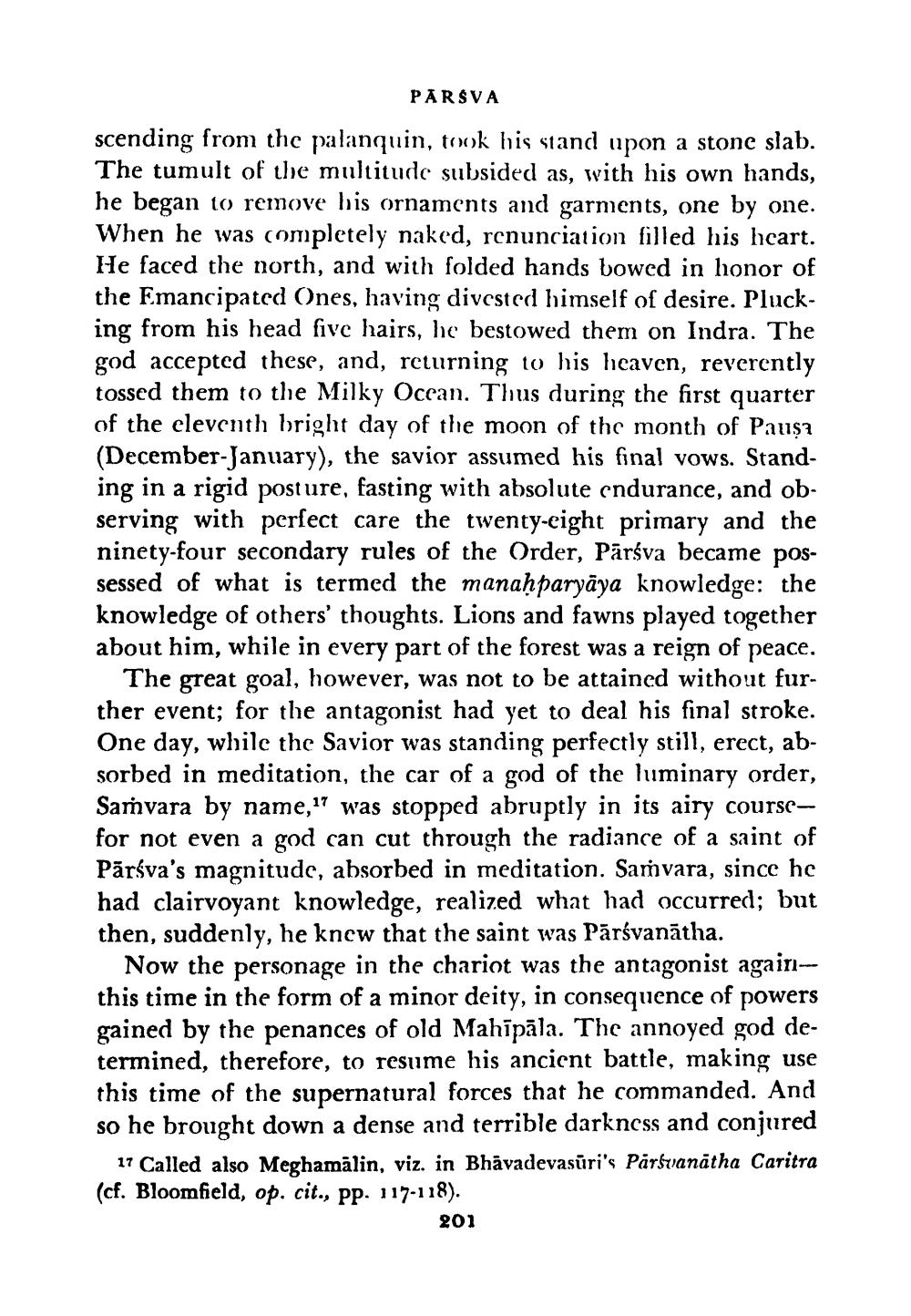________________
PARSVA
scending from the palanquin, took his stand upon a stone slab. The tumult of the multitude subsided as, with his own hands, he began to remove his ornaments and garments, one by one. When he was completely naked, renunciation filled his heart. He faced the north, and with folded hands bowed in honor of the Emancipated Ones, having divested himself of desire. Plucking from his head five hairs, he bestowed them on Indra. The god accepted these, and, returning to his heaven, reverently tossed them to the Milky Ocean. Thus during the first quarter of the eleventh bright day of the moon of the month of Pausz (December-January), the savior assumed his final vows. Standing in a rigid posture, fasting with absolute endurance, and observing with perfect care the twenty-eight primary and the ninety-four secondary rules of the Order, Pārsva became possessed of what is termed the manaḥparyāya knowledge: the knowledge of others' thoughts. Lions and fawns played together about him, while in every part of the forest was a reign of peace.
The great goal, however, was not to be attained without further event; for the antagonist had yet to deal his final stroke. One day, while the Savior was standing perfectly still, erect, absorbed in meditation, the car of a god of the luminary order, Saṁvara by name,?? was stopped abruptly in its airy coursefor not even a god can cut through the radiance of a saint of Pārsva's magnitude, absorbed in meditation. Samvara, since he had clairvoyant knowledge, realized what had occurred; but then, suddenly, he knew that the saint was Pārsvanātha.
Now the personage in the chariot was the antagonist again--- this time in the form of a minor deity, in consequence of powers gained by the penances of old Mahīpāla. The annoyed god determined, therefore, to resume his ancient battle, making use this time of the supernatural forces that he commanded. And so he brought down a dense and terrible darkness and conjured
17 Called also Meghamälin, viz. in Bhāvadevasūri's Pārsvanātha Caritra (cf. Bloomfield, op. cit., pp. 117-118).
201




